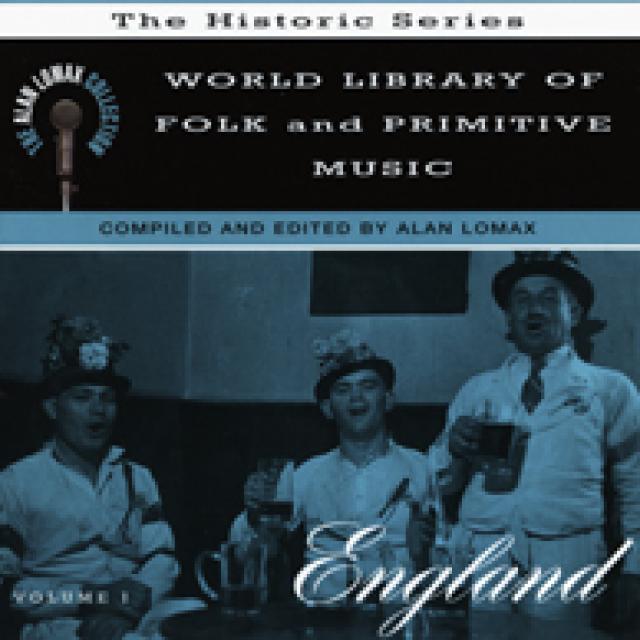
|
England
Recorded in 1951 by Alan Lomax; and by Maurice Brown, Douglas Cleverton, Brian George, Jack Dillon, E. J. Moeran, Geoffrey Bridson, Olive Shapeley, and Peter Kennedy for the BBC.
Notes by Peter Kennedy and Alan Lomax
The jovial, sensual, wicked, romantic England of Chaucer, Shakespeare, Fielding and Keats sings to us in these field recordings of sea shanties, mummer’s plays, ballads, dance tunes, and children’s songs made from 1939 to 1951. With performances by Bob and Ron Copper, Phil Tanner, Ewan MacColl, A. L. Lloyd, Isla Cameron, Jack Armstrong’s Barnstormers, and Jumbo Brightwell. Includes the Padstow May Day Songs and hobby horse music.
“This compilation is a must-have for anyone with an interest in English folk music, and I cannot recommend this — or any other Alan Lomax collection — highly enough.” —Green Man Review
|
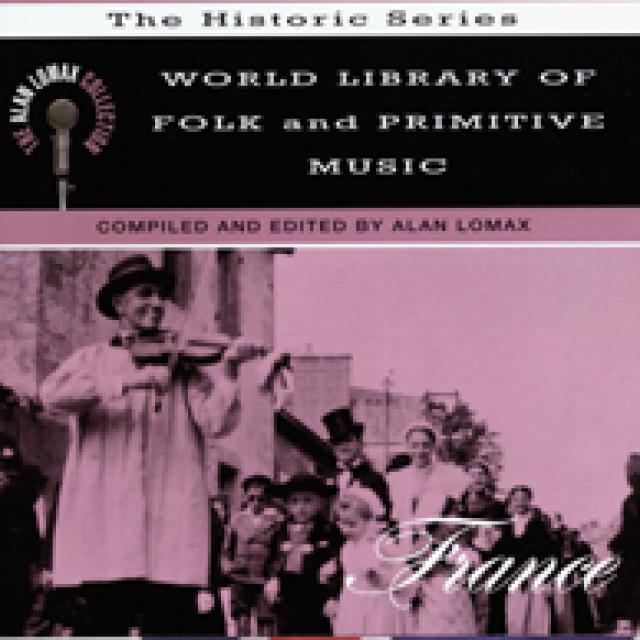
|
France
Recorded (1913–86) by Ferdinand Brunot, Claudie Marcel-Dubois and Marie-Marguerite Pichonnet-Andral, Felix Quilici, Brigitte Cardon, and Jean Dominique Lajoux
Originally selected and edited (1955) by Claudie Marcel-Dubois and Maguy Andral from the Musée National des Arts et Traditions Populaires
This newly remastered, expanded edition of Claudie Marcel-Dubois and Marie-Marguerite Pichonnet-Andral's path-breaking 1954 LP for Columbia World Library brings us a tonal landscape as varied and beautiful as the provinces of France. Featuring historic performances by traditional singers (some recorded as early as 1913) and unusual instruments, including the hurdy-gurdy, bouhe and cabrette bagpipes, galoubet, chirula, ttunttun, gralla, church bells, and épinette des Voges.
New tracks include a bombarde and biniou duet (by Pierre Crépillon and Laurent Bigot, recorded 1995) and the Kemper bagad ensemble (1998), both from the Bréton folk revival; and brass band music from the French Antilles (Guadeloupe).
This edition produced in collaboration with the Musée National des Arts et Traditions Populaires / Centre d'Ethnologie Française; in collaboration with Yves DeFrance.
|
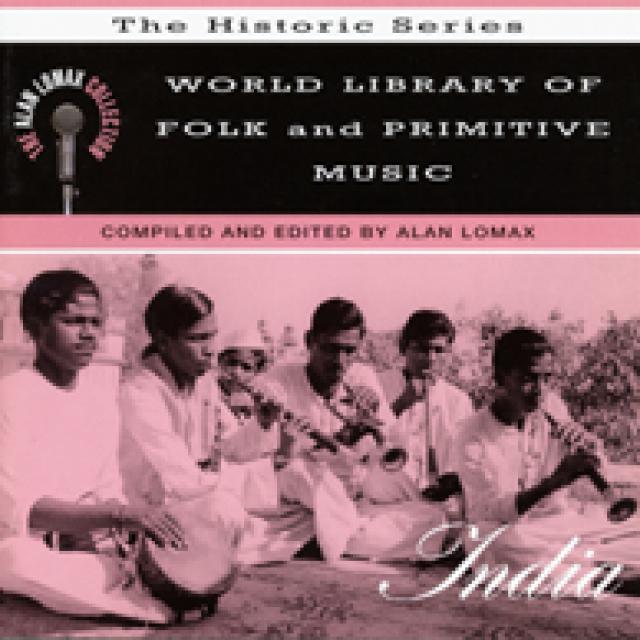
|
India
Recorded 1950–1958 by Alain Daniélou
Notes by Amy Catlin and Nazir Jairazbhoy
Originally recorded in the 1950s by author, painter, and Hindu philosopher Alain Daniélou, this collection was the first of its kind to be published and offers a glimpse into the vast and varied universe of Indian traditional music through sacred and ritual songs, classical improvisations, and popular art music.
|
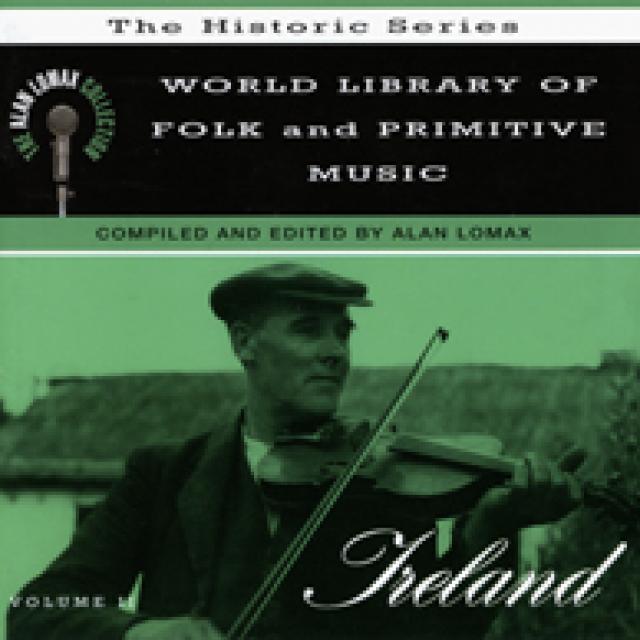
|
Ireland
Recorded 1951 by Seamus Ennis, Alan Lomax, Robin Roberts; and by Brian George and Maurice Brown for the BBC, with the cooperation of the Irish Folklore Commission, the British Broadcasting Corporation and Radió Éirann
Original notes by Alan Lomax and Peter Kennedy
Edited and with a new introduction by Nicholas Carolan; foreword by Robin Roberts
“Spanning a variety of Irish traditions, and preserving performers long dead and styles now obsolete, this long-out-of-print collection will be a revelation to many and provide insight into that different world of Irish music of the mid-twentieth century.” —Nicholas Carolan, Irish Traditional Music Archive
|
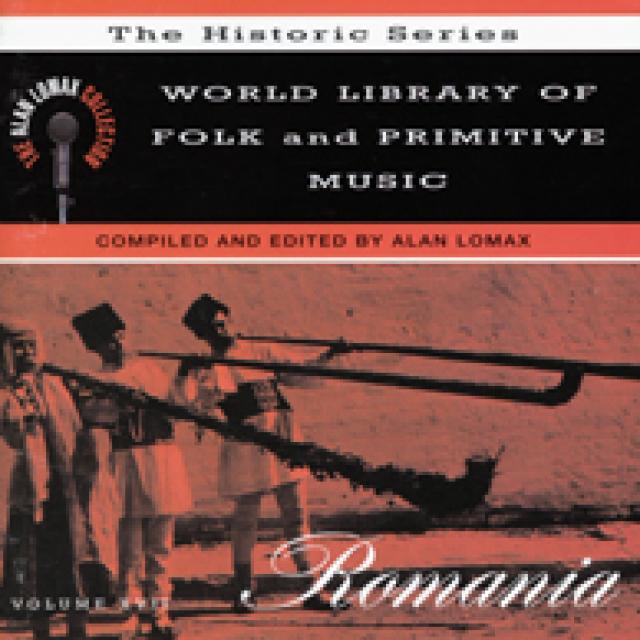
|
Romania
Recorded 1934–1957 by Tiberiu Alexandru, Alexandru Amzulescu, Ovidiu Bârlea, Contantin Brǎiloiu, Liviu Brumaru, Paula Carp, Gheorghe Ciobanu, Ilarion Cocişiu, Emilia Comişel, Victoria Dosios, C. Enişteanu, Maria Fusteri, Mariana Kahane, Boris Marcu, Elisabeta Moldoveanu, Vasile D. Nicolescu, Constantin Prichici, Adriana Sachelarie, Lucilia Stǎnculeanu, Gheorghe Vancu, and Adrian Vicol
Original notes by Tiberiu Alexandru and A. L. Lloyd
Newly edited and with introduction and notes by Speranţa Rǎdulescu
A panorama of Romanian peasant music recorded from 1934 to 1957, representing all culture areas, musical categories, and historical and regional styles. This historic collection is rich with folk masterpieces interpreted by musicians legendary in their villages. Reissue contains previously unreleased material.
“The organization and the clearly written accompanying material make this CD one of the more accessible examples of the musical genre and could be a good jumping off point for those interested in learning more about the traditional music of other countries.” —Rambles
|
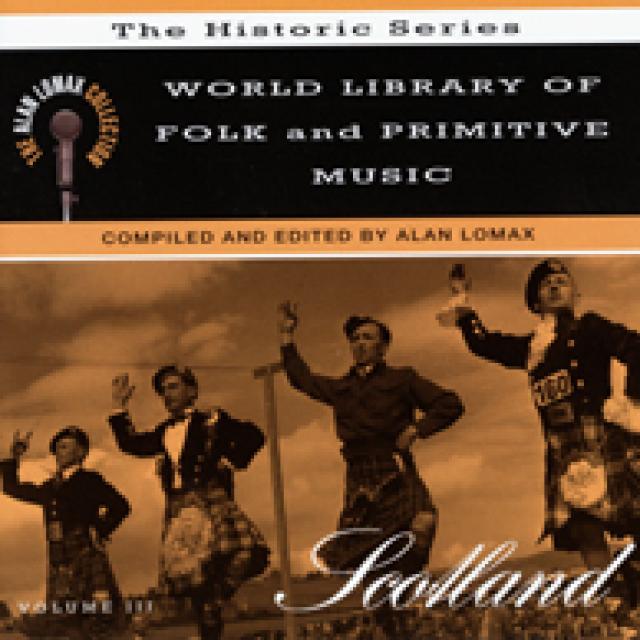
|
Scotland
Recorded 1951 by Alan Lomax, with assistance from the Macleans of Raasay, Hamish Henderson, William Montgomerie, and the cooperation of the British Broadcasting Corporation
Original notes by Alan Lomax
Newly edited and with an introduction by Hamish Henderson and Margaret Bennett. Gaelic texts and notes edited by Margaret Bennett and John MacInnes
This first recorded survey of Scottish folk song docuements moving renditions of ancient ballads, Gaelic work songs, children’s songs, dance and piping tunes, and contemporary folk songs performed by figures central to Scotland’s traditional musical heritage: Ewan MacColl, Hamish Henderson, Jimmy Shand, Flora MacNeil, and Jimmy MacBeath.
“With the passing of time, the Lomax recordings have become the more valuable to a culture that is now experiencing a revival; the recordings remain as a testimony to the new generation that the songs and music of their forebears grew out of a way of life that was rooted in the soil and weathered in the elements.”
—Hamish Henderson and Margaret Bennett
|
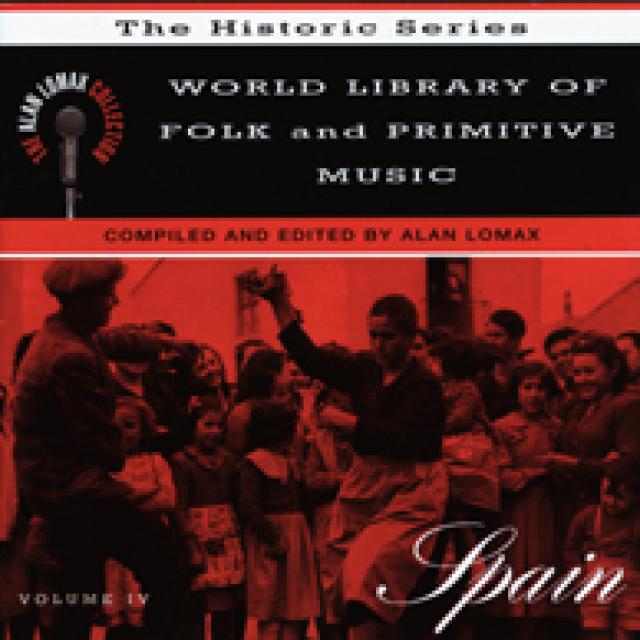
|
Spain
Newly edited and introduced by Josep Martí y Perez
A remarkable document of a splendid musical heritage that has profoundly influenced the world’s music. In this sampler Basque war cries, Galician bagpipes, asturianadas; Castilian ballads; Andalusian fandangos and saetas; ancient songs from Santander, Murica, Mallorca, and Ibiza; and work songs, lullabies, and dances from every region all attest to the integrity and diversity of the Spanish folk song tradition in an era when folk music was still an integral part of daily living. Includes the “Alborada de Vigo,” which Miles Davis used as the thematic motif in his Sketches of Spain.
|
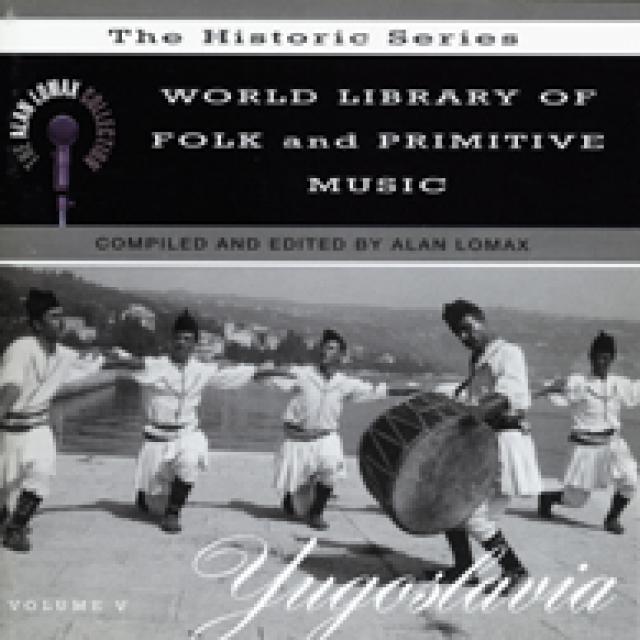
|
Yugoslavia
Recorded 1951 by Peter Kennedy with the aid of the Yugoslav Council for Science and Culture
Original notes by Albert Lord.
Newly edited and with an introduction and notes by Ankica Petrović and Rajna Klaser. Text transcriptions and translation by Albert Lord and Rajna Klaser
Made at a national folk festival in 1951, these recordings capture the rich musical traditions and practices prevailing in the territory of the former Yugoslavia. They testify to the depth and scope of ethnomusicological research by regional folklore institutes in their quest to construct a supranational culture — Yugoslavia — poignantly reminding us of an ideal of cultural co-existence.
“Some of the tracks are stunningly beautiful, others are unusual and intriguing, and there are some to which I will never grow accustomed. The overall goal, however, is preservation of a diverse culture’s folk tradition, and in that this thorough collection succeeds admirably.” —Rambles
|








